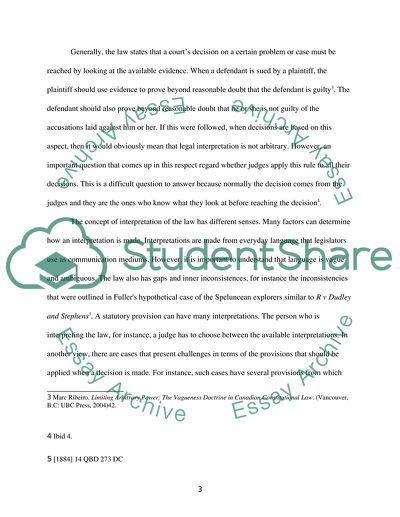Cite this document
(“INTRODUCTION TO LAW AND LEGAL REASONING Essay Example | Topics and Well Written Essays - 1750 words”, n.d.)
INTRODUCTION TO LAW AND LEGAL REASONING Essay Example | Topics and Well Written Essays - 1750 words. Retrieved from https://studentshare.org/law/1692682-introduction-to-law-and-legal-reasoning
INTRODUCTION TO LAW AND LEGAL REASONING Essay Example | Topics and Well Written Essays - 1750 words. Retrieved from https://studentshare.org/law/1692682-introduction-to-law-and-legal-reasoning
(INTRODUCTION TO LAW AND LEGAL REASONING Essay Example | Topics and Well Written Essays - 1750 Words)
INTRODUCTION TO LAW AND LEGAL REASONING Essay Example | Topics and Well Written Essays - 1750 Words. https://studentshare.org/law/1692682-introduction-to-law-and-legal-reasoning.
INTRODUCTION TO LAW AND LEGAL REASONING Essay Example | Topics and Well Written Essays - 1750 Words. https://studentshare.org/law/1692682-introduction-to-law-and-legal-reasoning.
“INTRODUCTION TO LAW AND LEGAL REASONING Essay Example | Topics and Well Written Essays - 1750 Words”, n.d. https://studentshare.org/law/1692682-introduction-to-law-and-legal-reasoning.


